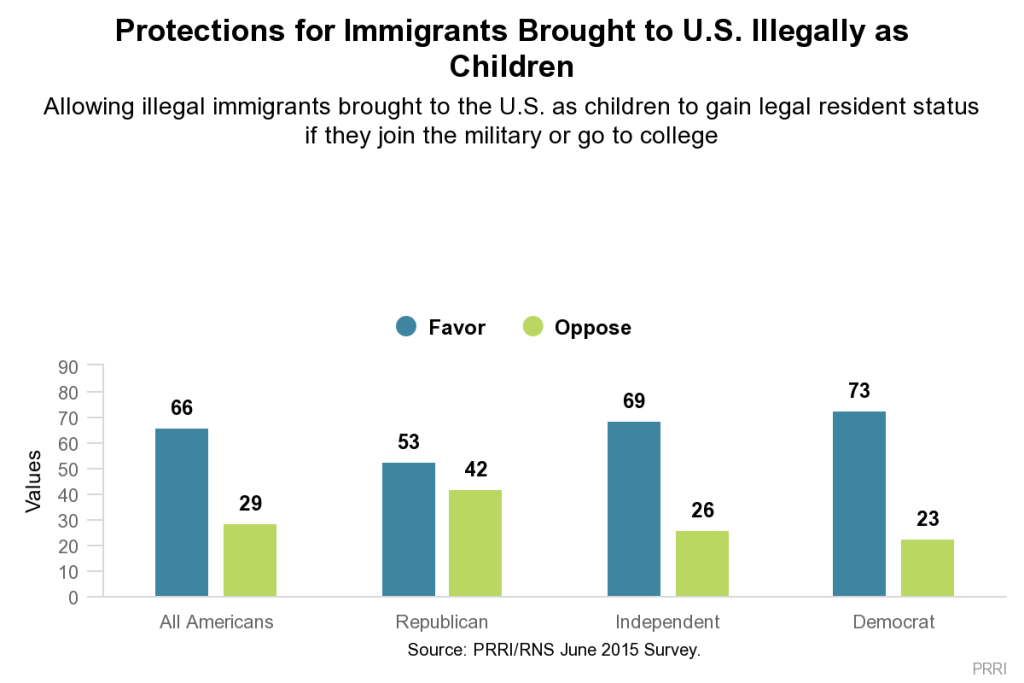The Deferred Action for Childhood Arrivals (DACA) program offers discretionary relief from deportation proceedings for the hundreds of thousands of immigrants brought to the U.S. illegally as children. President Trump frequently threatened to end the program during his campaign. However, policies that would extend and make permanent current DACA protections enjoy broad bipartisan support, per findings from the PRRI/RNS June 2015 Survey.
 Roughly two-thirds (66 percent) of Americans favor allowing immigrants brought to the U.S. illegally as children to gain legal resident status if they join the military or go to college, while nearly three in ten (29 percent) oppose such a policy.
Roughly two-thirds (66 percent) of Americans favor allowing immigrants brought to the U.S. illegally as children to gain legal resident status if they join the military or go to college, while nearly three in ten (29 percent) oppose such a policy.
Majorities of Democrats (73 percent), independents (69 percent), and Republicans (53 percent) favor granting legal residency to immigrants brought here illegally as children who serve in the military or attend college.
Such policies enjoy sweeping support among religious Americans. Most Catholics (70 percent), nonwhite Protestants (66 percent), and white mainline Protestants (62 percent) support allowing immigrants brought into the country illegally as children to gain legal resident status if they join the military or go to college. The religiously unaffiliated show the strongest support among religious groups for such legislation at 73 percent. White evangelical Protestants show the lowest support, although a majority (57 percent) favor such a policy.
This legislation also garners majority support across racial and ethnic groups. At least six in ten Hispanic (78 percent), black (70 percent), and white Americans (64 percent) favor granting legal residency to immigrants brought to the U.S. illegally as children who attend college or serve in the military.
There are modest differences among whites by education. Nearly six in ten (59 percent) whites without a four-year college degree support this policy, compared to seven in ten (70 percent) whites with a college degree.
Among age groups, young adults (age 18-29) are only slightly more likely than seniors (age 65 or older) to support allowing immigrants brought to the U.S. illegally as children to gain legal resident status if they join the military or go to college (72 percent vs. 65 percent, respectively). Notably, Americans aged 50-64 exhibit the lowest support for such legislation, though most (58 percent) support it.
For more, read the PRRI/RNS June 2015 Survey.
Image by David Phan/Flickr.